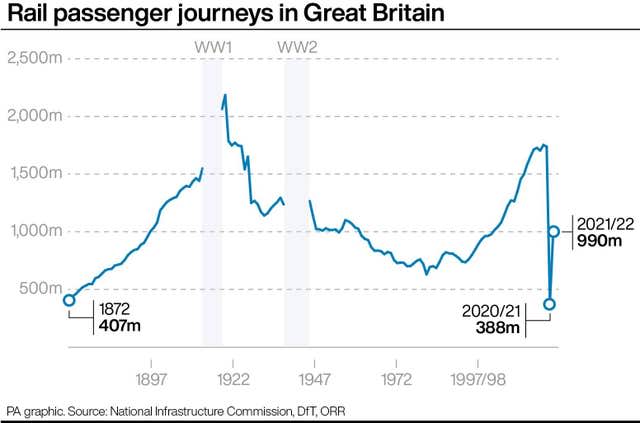Revenue from train fares 54% of pre-pandemic levels
Revenue from train fares was nearly half of normal levels in the year to the end of March, new figures show.
Rail regulator the Office of Rail and Road said the industry generated £5.9 billion from ticket sales over the 12-month period.
That was nearly three times more than the £2.0 billion recorded during the previous year, which included coronavirus lockdowns.
But the total was 54% of the £11.0 billion from two years ago.

Some 990 million journeys were made in Britain in 2021/22.
That was more than double last year’s total of 388 million, but was 57% of the 1.739 billion recorded in 2019/20.
Before the virus crisis, the rail industry relied on passengers buying expensive annual season tickets for much of its revenue.
But the switch to home-working meant income from the long-term tickets was £526 million in the year to the end of March.
That was 24% of the £2.2 billion generated in 2019/20.

 Yahoo Finance
Yahoo Finance 